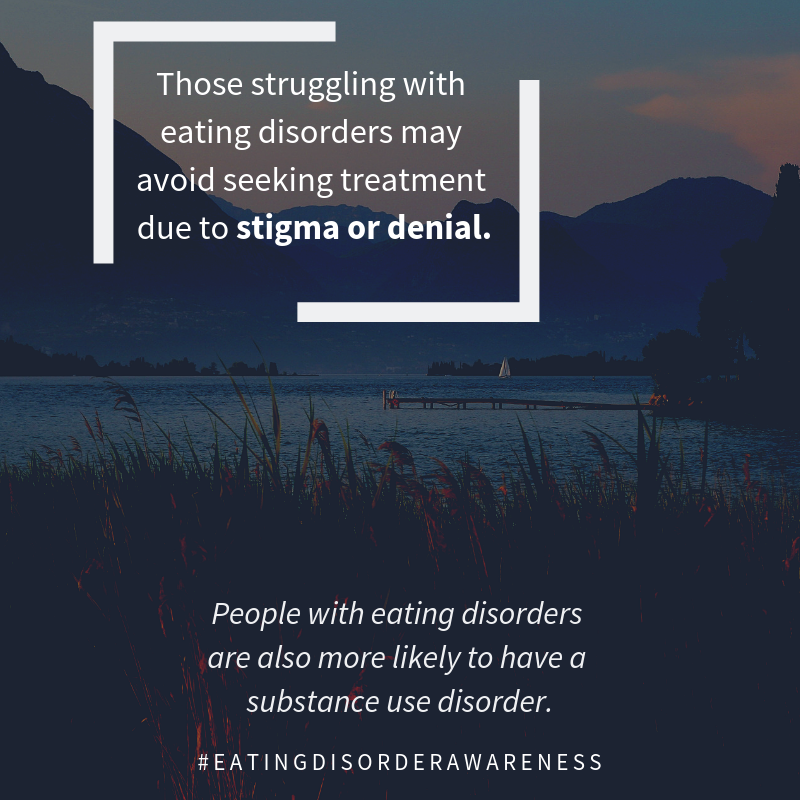
Eating Disorders Awareness Prevention and Treatment
Eating disorders are dangerous, and often lifelong struggles that people face. The most common eating disorders are anorexia nervosa, bulimia nervosa, and binge-eating disorder. Both men and women can struggle with eating disorders, although, it seems to be higher in women. Those with eating disorders are also at a higher likelihood to suffer from substance use disorders, especially alcohol use disorder. In childhood, the numbers of girls to boys suffering from eating disorders is 5:1, this ratio changes to 10:1 in adulthood. The numbers of people suffering from eating disorders could potentially be underrepresented due to many never seeking help due to stigma, denial, or other factors.
- Anorexia nervosa is defined by a restriction of food resulting in significantly reduced body weight that can eventually lead to death. Anorexia nervosa has the highest mortality rate of any mental illness and has an onset commonly around the time of puberty. This decrease in body weight can have a detrimental effect on health in numerous areas including cardiovascular, gastrointestinal, and neurological health.
- Bulimia nervosa is defined as alternating cycles of binging and compensatory behaviors that look to “undo” the binging behavior through vomiting, laxatives, or by other means of purging. This cycle can actually lead to chemical and electrolyte imbalances in the body, which in turn can be debilitating and deadly by causing cardiac arrest.
- Binge eating disorder is the most common eating disorder in the United States, about 3.5% of women and 2% of men suffer from it. Anywhere from 30-40% of those seeking weight loss treatments could be diagnosed with binge eating disorder, as well. The hallmark of binge eating disorder is eating an inordinately large amount of food in a given amount of time than others would in the same situation; there is also a described lack of control during these binges.
Some lesser known eating disorders are orthorexia and avoidant restrictive food intake disorder. Orthorexia is an unhealthy obsession over health foods and a healthy diet that eventually results in a very restrictive diet of acceptable foods. Orthorexia can lead to anxiety surrounding eating habits, especially when deviating from what the individual deems acceptable. Avoidant restrictive food intake disorder (ARFID) is very similar to anorexia; however, the main symptom that is present in anorexia but not in ARFID is a fixation over appearance and body dysmorphia. Although, both of these disorders are not as well known, they can be just as debilitating and have an impact on an individual’s day-to-day life.
Eating disorders are serious and have to be treated as such. There are ways to get help if you are suffering from an eating disorder. The earlier an eating disorder is detected and acknowledged, the higher the chance of recovery. Recovery from any mental illness takes time and effort, but it is always possible.
If you or someone you know is struggling with an eating disorder, please feel free to contact the professional team at Lifeline Connections for help! Getting yourself help, is an important part of recognizing that you are struggling and is a good step forward to get the help that you need. You can visit Lifelineconnections.org or call 360.397.8246 for more information.
